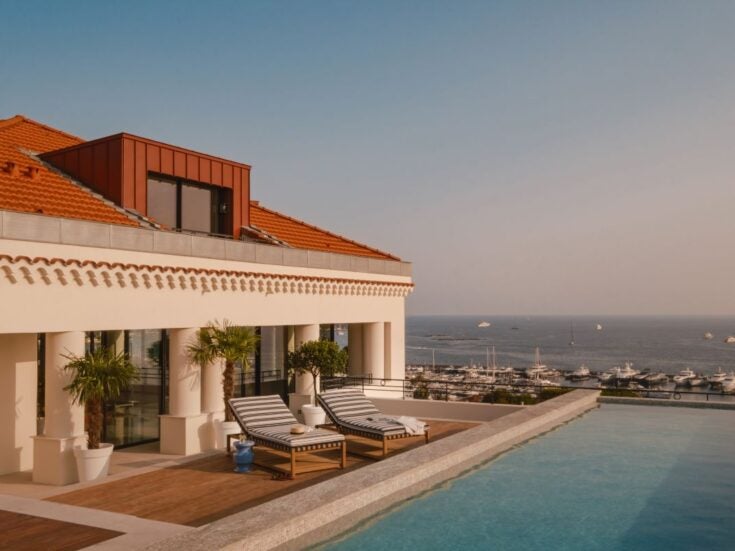

CLUB SCOUTS
Do you want to buy a house? Well, not so much a house as a mortgage. Well, not so much a mortgage as part of a mortgage. Whose house? That’s not important. I hear Florida is lovely this time of year.
That, before 2008, was how most of us would have ended up investing in property, and we know where that got us. But since the crisis, a desire for return and a desire for real assets have combined to make property clubs — where several HNWs purchase a building or two together — a new avenue.
‘If you go back to the crisis and 2008, people were tired of investing with managers in blind pools of capital; they were literally sending their money over without knowing what it was going to be invested in,’ says Charlie Hoffman, managing director of HSBC Private Bank. A retreat from that is one of the reasons his bank has started offering these property clubs.
Read more on property investment from Spear’s
‘Post-2008, clients wanted that transparency, they wanted to touch that brick and mortar, they wanted to own a bit of that building, and the beauty of club deals meant clients wouldn’t have to put in a whole $150 million of their own money totally into one building. It’s the opportunity to build up diversity in a portfolio in terms of size and geography.’
It all sounds so simple now, but HSBC’s first deal in 2009 required initiative and more than just a toe in the water. They identified Washington DC, with a high federal spend and government tenants, as fertile ground, specifically 1625 Eye Street: ‘It was a building we acquired from a distressed REIT [real estate investment trust]. It had an income of around 6 per cent and was very successful, so we acquired a second building in the same street in May 2010.
‘It was a trophy office building, three blocks from the White House, and we were buying at a low point in the cycle; again, returns of 6.5 per cent and mid-teens IRR. Clients love that.’
The return on the first venture meant they ‘were two and a half times oversubscribed. We had one $12 billion family office trying to chase it who didn’t have access.’ It’s not without pride when Hoffman says: ‘At the beginning of 2009 people were saying, “What? What, are you sure?” And by the end of it they were saying, “Get me more of it!”‘ HSBC hasn’t looked back and has since given clients the opportunity to invest in 1540 Broadway on Times Square and Broadgate West in the City of London.
Gold bricks
Such returns haven’t gone unnoticed by those overseas, especially when it comes to the UK’s golden goose: prime central London real estate. Nick McCall, CEO of Falcon Private Wealth, which matches clients to property clubs or sources property investments as alternatives within wider portfolios, describes a typical client: ‘A wealthy businessman wants to have an investment abroad, likes London, sees UK property as being very safe, with a stable legal system which means it won’t get stolen by the government.’
Dealing mostly with clients from emerging markets, McCall is bullish: ‘The attraction of London as a luxury market has always waxed and waned, but there always seems to be somewhere that wants to buy London property. As a business we think money is going to start gushing out of China, representing the next wave as they move to liberalise their foreign exchange rules.’
Conversely, Hoffman is looking to give his clients exposure to property clubs in emerging markets, partnering with Singapore’s sovereign wealth fund, Temasek, for local expertise as well as to look for other opportunities: ‘That might be South America, Australia, Japan, Hong Kong, Korea, India, wherever we think we’re at the right point in the cycle. It’s a great way for a client to build up a global property offering.’
Those property offerings have certainly painted a rosy picture so far. Hoffman is targeting 6 per cent per year and 16 per cent IRR, while McCall wants ‘to make 7-8 per cent on an annual basis’.
However, illiquidity makes this a gilded cage. If you can stomach the troughs and peaks then the benefits are there, says Hoffman: ‘A lot of clients say, “Oh, my property has done really well,” but they tend to forget that when it has gone down the reason they haven’t been perturbed was because they couldn’t sell it if they wanted to and they haven’t got a fund manager jabbing a piece of paper in front of them telling them they’re 5 per cent down month on month.’
Home to roost
There are still traditional property funds being raised. London Central Portfolio has launched the UK’s first Sharia-compliant residential property fund for Middle Eastern investors. Naomi Heaton, CEO of LCP, is forecasting residential returns ‘potentially as high as 14 per cent per annum, which would deliver over a 100 per cent return for a five-year hold’.
She explains: ‘Residential property in prime central London has finally carved its place as a significant player in a balanced portfolio; it’s no longer looked upon as commercial property’s poor relation.’
However, Kevin Aitchison, CEO of Knight Frank Investment Management, is dismissive: ‘People would tell you pre-crash that [open-ended] funds were safer because you were far more liquid and you weren’t owning a property directly, so you could always get out.
The theory is great, but during the crash all that happened was these funds closed up shop because their documentation allowed them to defer redemption. Some had a queuing mechanism, so you could be waiting for years. The one thing the crash did show was direct property is more liquid because you can always sell direct property.’ (LCP’s funds are closed-ended.)
Aitchison and CIO Ian Whittock, both formerly of ING, head up Knight Frank’s private investment arm, offering small groups of investors (typically fewer than five) the chance to buy into and develop a building. A crucial factor for investors is the control they have compared to a large fund.
‘A number of clients have said to us they wouldn’t invest in a fund again, they’re happy in a small club with like-minded investors who have similar objectives,’ says Whittock. Aitchison cites one UBS fund previously worth £2.5 billion: ‘That fund is now worth about £900 million, and that was redemptions and all sorts of other issues; long-term investors that want to stay in really suffer.’
Long-term returns seem to lie in the regions. Aitchison and Whittock mention BA and West Midlands county council pension funds’ backing of Birmingham’s Fort shopping centre. Pension funds from abroad, such as the Dutch APG and PGGM, are also interested, along with big funds from Korea and China who want to partner the Westfield franchise.
Downsides remain, with many clubs being closed-ended: ‘I spoke at a conference,’ says Aitchison, ‘and I said, “There’s a growing tendency towards club deals.”
This guy at the back put his hand up and said, “I want everyone in this room to know that that’s a complete load of rubbish! I entered into a so-called club deal two years ago with so-called like-minded investors, and two years later we all wanted to go in different directions. We might have been like-minded on day one, but we’re jolly well not now!”‘
Perhaps that’s not club etiquette, but if you can agree a plan, are prepared for the long haul and know potential from trophy, then houses, offices and shopping centres look a lot safer than mortgage-backed sandcastles.






